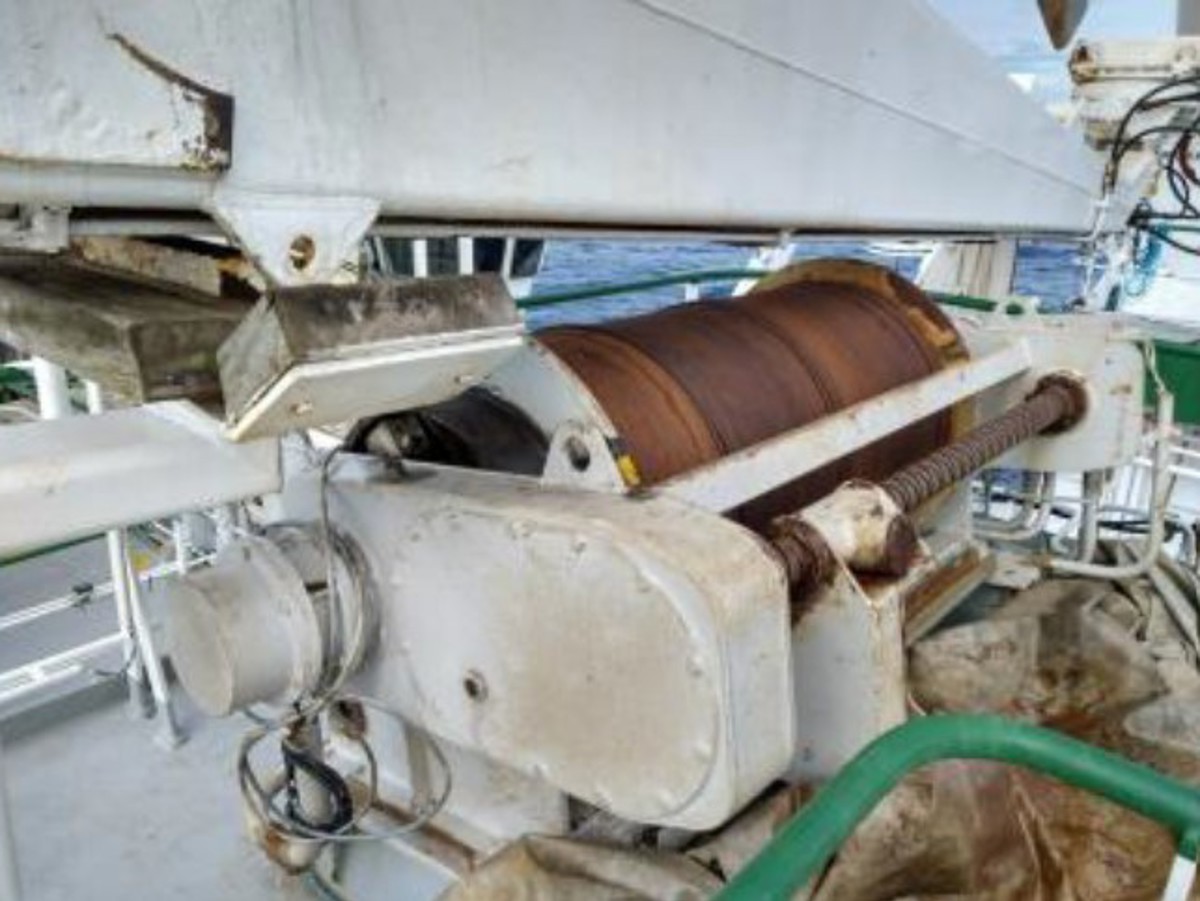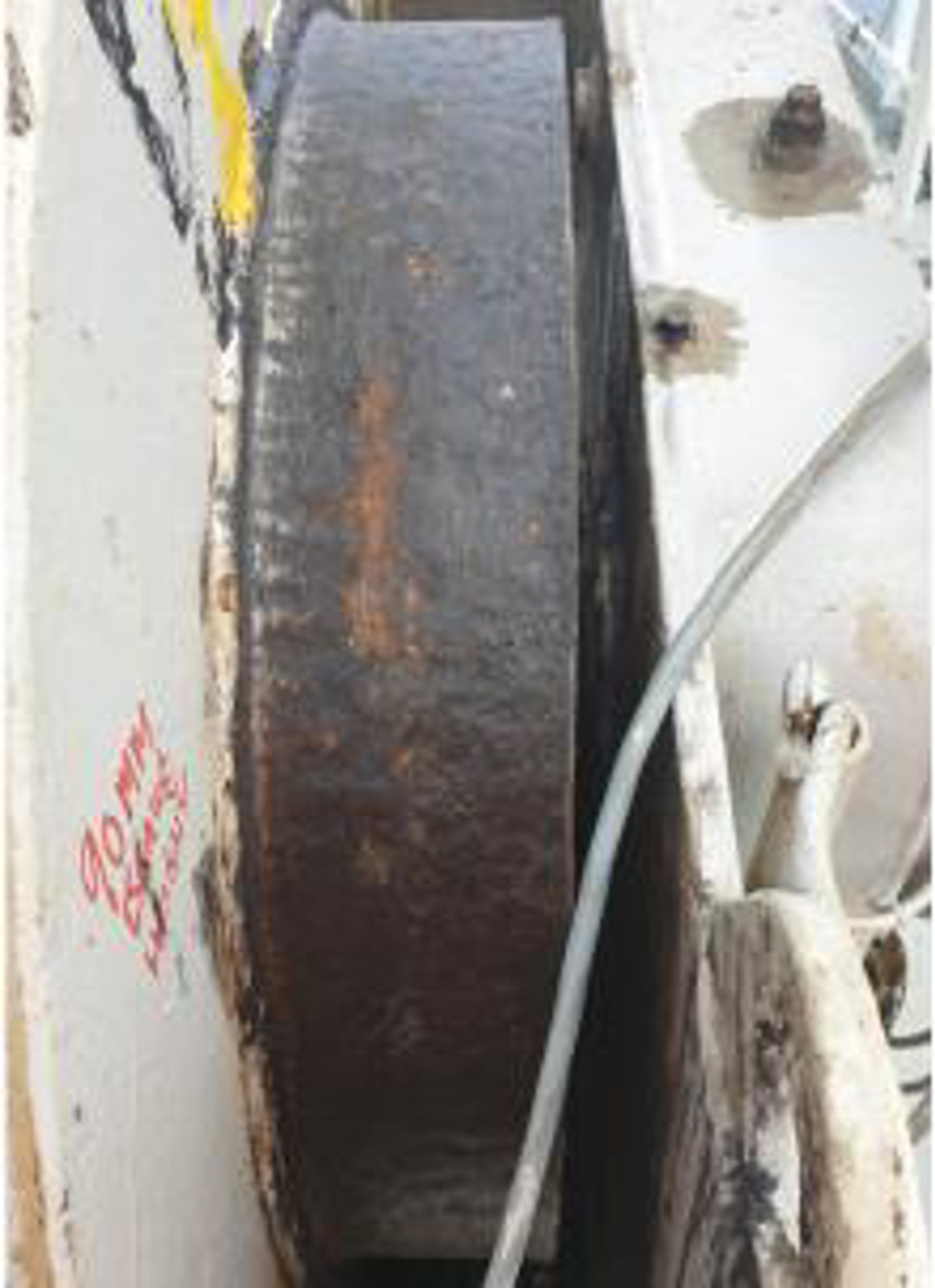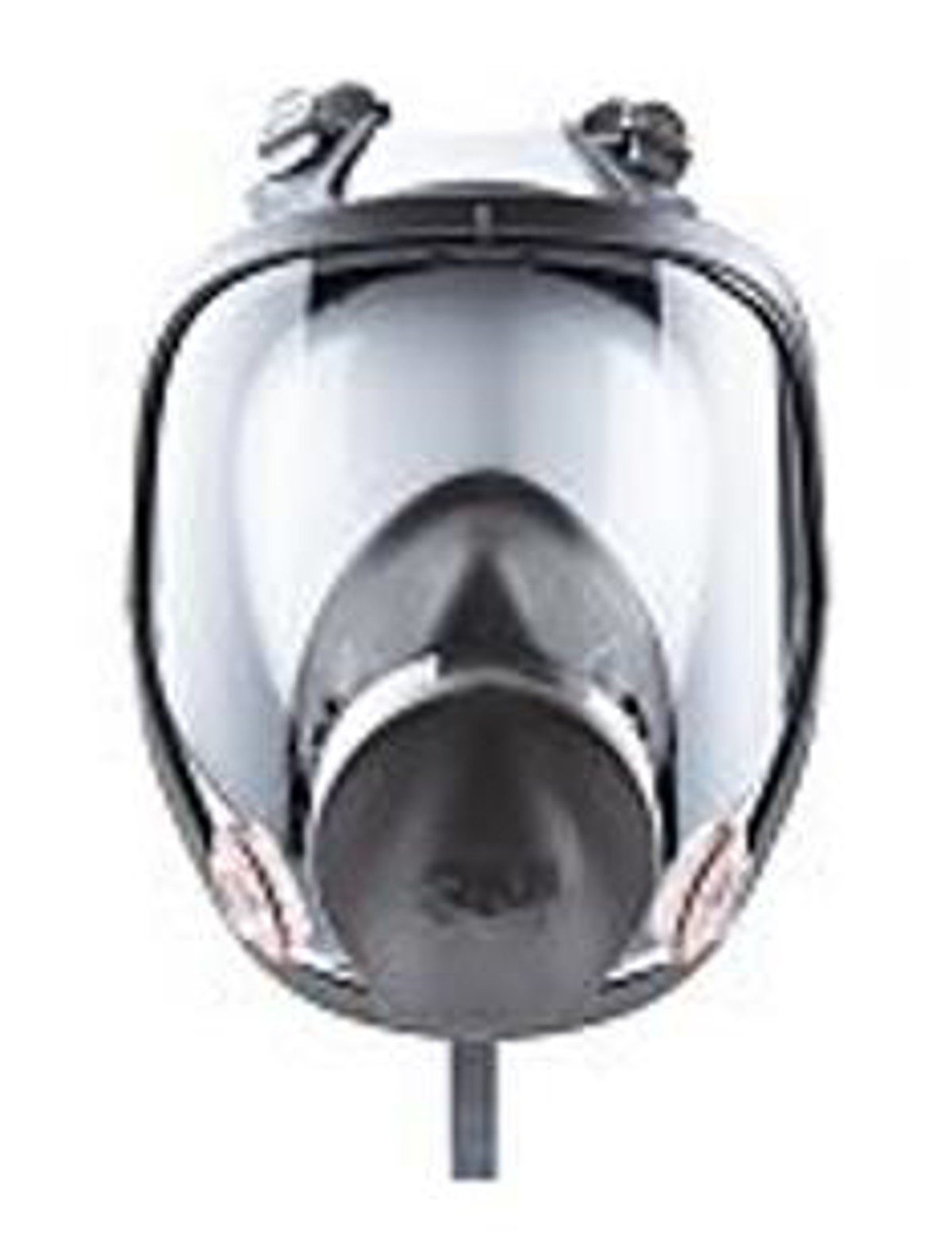De-rusting incident resulting in eye injury
- Safety Flash
- Published on 8 November 2021
- Generated on 2 March 2026
- IMCA SF 30/21
- 2 minute read
Jump to:
During descaling operations using a chipping hammer, a worker got dust or rust in his eye, although he was wearing goggles and a mask at the time.
What happened?
The incident occurred while descaling rust from inside the brake band of a winch, using a chipping hammer and a sanding disc.

Winch unit being cleaned

Brake band after descaling

Full face mask with respirator filter
What were the causes?
It is thought that owing to the awkward nature and inaccessible location of the brake band, the goggles loosened as the worker moved his head, allowing dust to enter.
Actions and recommendations
Our Member’s recommendations were:
- Full face mask with respirator filter suitable for dust/particles to be used for heavy de-rusting and other similar maintenance activities.
- Check inside of full-face mask for foreign bodies before use.
- Take great care when removing head and face protection:
- Bend forward at the waist. This will ensure any debris falls onto the deck away from the body and not into the face.
- Check hair and run hands through hair/over the head to remove any debris/particles prior to removing goggles/full face mask.
- Carefully clean full-face masks before and after use.
- Get a colleague to help you can remove any debris from your PPE and clothing before removal.
- Bend forward at the waist. This will ensure any debris falls onto the deck away from the body and not into the face.
IMCA notes that eye injuries arising either from incomplete protection of the eyes, or from material getting into the eyes from a person’s hair or from the mask itself, have arisen a number of times before. Members may wish to focus on this area.
The following may be worth reviewing:
- IMCA short video: Be prepared to work safely – Protect your eyes
Related Safety Flashes
-
IMCA SF 12/21
27 April 2021
-
IMCA SF 08/17
12 April 2017
-
-
IMCA SF 02/20
10 January 2020
-
-
IMCA SF 23/17
21 September 2017
-
-
IMCA SF 26/17
20 October 2017
-
-
IMCA SF 30/16
9 November 2016
-
IMCA SF 10/15
16 July 2015
IMCA Safety Flashes summarise key safety matters and incidents, allowing lessons to be more easily learnt for the benefit of the entire offshore industry.
The effectiveness of the IMCA Safety Flash system depends on the industry sharing information and so avoiding repeat incidents. Incidents are classified according to IOGP's Life Saving Rules.
All information is anonymised or sanitised, as appropriate, and warnings for graphic content included where possible.
IMCA makes every effort to ensure both the accuracy and reliability of the information shared, but is not be liable for any guidance and/or recommendation and/or statement herein contained.
The information contained in this document does not fulfil or replace any individual's or Member's legal, regulatory or other duties or obligations in respect of their operations. Individuals and Members remain solely responsible for the safe, lawful and proper conduct of their operations.
Share your safety incidents with IMCA online. Sign-up to receive Safety Flashes straight to your email.